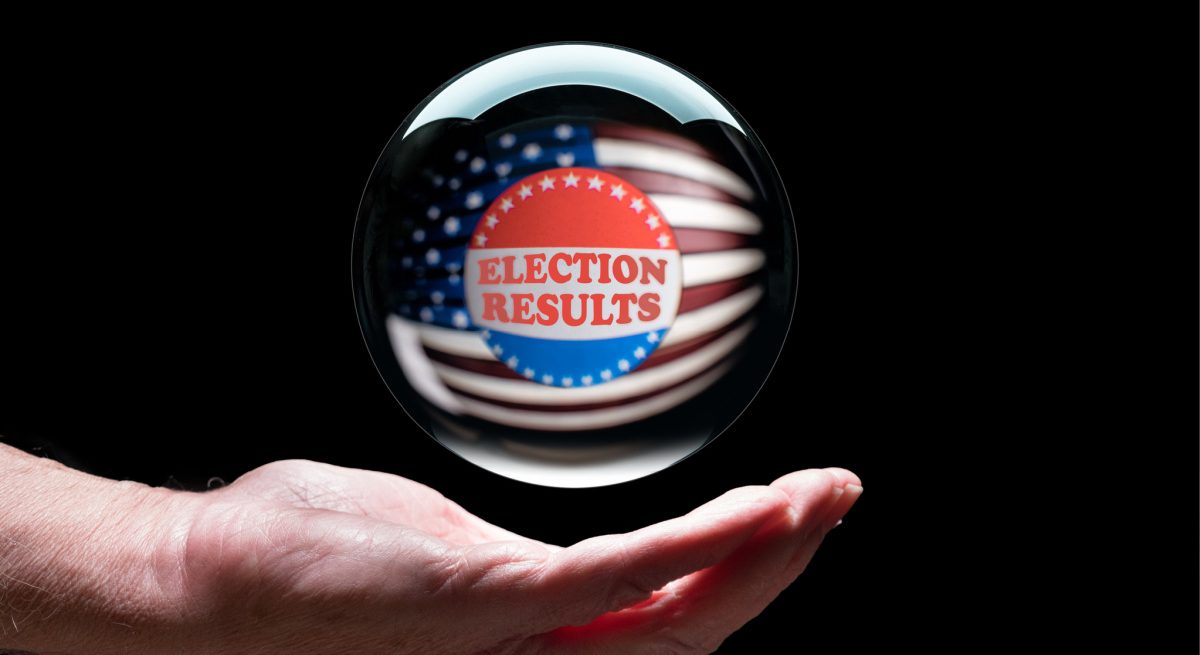September/October 2020 and Elections Legal Update
4 Min Read By Pooja S. Nair
Pooja S. Nair, a partner at Ervin Cohen & Jessup LLP compiles recent legal news affecting the restaurant, food and beverage and hospitality industries for Modern Restaurant Management (MRM) magazine.
Election Results
Voters in several states passed propositions that will affect the food and beverage industry.
- Florida Increases Minimum Wage: Over 60 percent of Florida voters approved Amendment 2 to increases the minimum wage. Florida’s minimum wage rate is currently, $8.56, and will increase to $10 an hour in September 2021. It will then increase by $1 each year until it reaches $15 an hour in 2026. The minimum wage rate applies to all public and private sector employers, regardless of size or number of employees. Florida is only the eighth state in the country to raise its minimum wage to $15 an hour, joining California, Connecticut, Illinois, Maryland, Massachusetts, New Jersey, and New York.
- App Companies Win Big in California: Uber, Lyft, and Door Dash secured a victory in their expensive campaign to overturn part of California’s AB-5 law. Under California law, app-based gig workers would have been considered employees. 55% of California voters supported Proposition 22, to categorize app-based drivers as independent contractors. Proposition 22 requires companies with independent-contractor drivers to provide specified alternative benefits, including: minimum compensation and healthcare subsidies based on engaged driving time, vehicle insurance, safety training, and sexual harassment policies. However, drivers would not be eligible for employee benefits or compensation.
- California Increases Consumer Privacy Protections: California voters passed Proposition 24, which will increase consumer privacy protections in the state and impose new requirements for certain businesses. The law amends and expands the California Consumer Privacy Act of 2018 (“CCPA”). These requirements for businesses will go into effect on January 1, 2023. The law also establishes a California Privacy Protection Agency, which will enforce and implement consumer privacy laws and can administer fines for businesses that violate California’s privacy laws.
- Colorado Passes Family and Medical Leave: Colorado voters passed Proposition 118, which permits 12 weeks of paid family and medical leave funded through a payroll tax. Employees with pregnancy or childbirth complications may be eligible for an additional four weeks of leave. Benefits will begin on January 1, 2024, with taxes to be paid starting on January 1, 2023.
Litigation
- Ninth Circuit Affirms Fishing Quota: On October 29, 2020, the Court of Appeal for the Ninth Circuit affirmed the administrative powers of the National Marine Fisheries Service under the Magnuson-Stevens Fishery Conservation and Management Act. The Service has a rule imposing a quota limit system for any one fishing entity, such that no single entity could control more than 2.7% of the outstanding quota. Pacific Choice Seafood Company challenged the rule, claiming that it violated the Magnuson Act and was arbitrary and capricious under the Administrative Procedures Act. The Court held that the quota was consistent with the statute, and was within the agency’s powers under the APA.
Legislation
- RESTAURANTS Act in Limbo: On October 1, 2020, House Democrats approved a coronavirus stimulus bill that included a $120 billion in relief for independent restaurants. However, the Senate has not begun the process of considering the stimulus package, and news reports suggest that they may not take this issue up until 2021.
- California Expands Sick Leave and Mandates Handwashing Breaks for Food Sector Employees: On September 9, 2020, enacted AB-1867 as emergency legislation, going into effect immediately. The law has three distinct parts: it expands California’s supplemental sick leave provisions for food sector workers, creates a new handwashing break requirement for food sector employees, and creates a pilot mediation program for small employers. The law permits the food sector worker to determine how many hours of this leave to use, up to the total number of hours to which the worker is entitled. Under the bill, the rate of compensation would be the highest of the food sector worker’s regular rate of pay in the last pay period, the state minimum wage, or an applicable local minimum wage, up to daily and aggregate total maximum payments. The supplemental paid sick leave benefit expires on December 31, 2020.
- California Imposes Food Safety Requirements on Delivery Apps: On September 18, 2020, California Governor Gavin Newsom signed AB-3336 into law. This law sets new safety standards for third-party delivery apps, including sanitation and temperature standards. The law requires that all bags or containers that are delivered by third-party food delivery apps be sealed by the restaurant before they are handed off to the delivery person. Additionally, food holding areas must meet sanitation standards, and food must be maintained at a temperature necessary to prevent spoilage.
- California Bans Food Delivery Apps from Delivering Without Restaurant Permission: On September 24, 2020, Governor Newsom enacted AB-2149, the Fair Food Delivery Act of 2020. The new law prohibits food delivery platforms from arranging for the delivery of food delivery orders without the express authorization of the food facilities. The law will go into effect on January 1, 2021.
- New York Allows COVID-19 Recovery Charge: The New York City Council allowed restaurants temporarily impose a COVID-19 recovery charge of up to 10 percent for customers dining on-site. Only independent restaurants are eligible for the charge. The charge may not be applied to takeout or delivery orders. Los Angeles has indicated that it may follow suit, with the County Board of Supervisors taking the first steps to approve a similar charge.
Administrative Developments
- FDA Proposes New Food Traceability Rule: On September 21, 2020, the Food and Drug Administration announced a proposed rule to establish additional traceability recordkeeping requirements for companies who manufacture, process, pack, or store foods that the FDA has included on its Food Traceability List. This is part of an agency-wide effort to help control outbreaks of foodborne illness.
- Department of Labor Proposes New Rule on Independent Contractor Status under the FLSA: On September 22, 2020, the U.S. Department of Labor announced a proposed rule for how to determine whether a worker is an employee or an independent contractor under the Fair Labor Standards Act. The new rule proposes an “economic reality” test to determine a worker’s status as an FLSA employee or an independent contractor. The test considers whether a worker is in business for themselves (independent contractor) or is economically dependent on a putative employer for work (employee).
- Michigan Scales Back Contact Tracing Order: On October 29, 2020, Michigan issued a Gatherings and Face Masks Epidemic Order. Part of this order requires restaurants and bars, along with other businesses to request the name and phone number of every customer entering the premises. Initially, restaurants were required to deny entry to customers who did not comply. After pushback from the ACLU, the state changed this guidance to be a recommendation to deny entry rather than a requirement.


